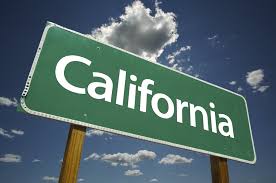 Many charter leaders around the country joined us on a recent webinar to hear from experts about how Federal and State policies will impact charter schools.
Many charter leaders around the country joined us on a recent webinar to hear from experts about how Federal and State policies will impact charter schools.
Panel speakers included our President and CEO Stuart Ellis, as well as two of the leading experts on charter school policy and law; Todd Ziebarth, Senior VP of State Advocacy and Support at the National Alliance for Public Charter Schools and John Cairns, Attorney and Consultant at John Cairns Law.
Looking at the current landscape for charter school policy and law around the country, the general feeling for charter school leaders is that they are in a “wait and see” mode. It is not yet known what the total impact on budget for education will be at the Federal level, or how the new administration’s support of charter schools will impact discussions at the state level around education reform. Ziebarth thinks we’ll know more about how these issues will be approached in the next legislative cycle. This will also impact funding available from government agencies (subsidies or direct grants) as well as the general market.
Meanwhile, momentum with charter school growth continues to gather speed with five states enacting charter school law in 2010. Maine and Washington passed their laws in 2011 and 2012 (respectively), and the unconstitutional ruling in 2015 by the Supreme Court was overturned in 2016. Also, Kentucky enacted their law this year, becoming the 44th state to have charter school law on the books. Charter opponents will continue to show up but this is a common strategy. When new charter laws goes into effect, opponents try to shut them down locally after failing at the legislative level. There is momentum toward passing charter law in five of the six states currently without charter law. Additionally, there has been progress made in states with existing laws, such as lifting caps on charter schools, strengthening school and authorizer accountability and improving facilities support.
In some cases, state legislatures continue to oppose charter school law, so there are some ongoing challenges. In Rhode Island, Illinois, Connecticut, and California there has been some success in pushing back against charter law, cutting funding or eliminating state authorizers.
At the Federal level there are a few key takeaways. Charter schools have a high public profile in the current administration and there are no major changes between the fiscal ’17 and fiscal ’18 budgets. Support for facilities grants remains the same, however specific grants for teacher trainings, after school and summer programs and aid in programs to first-generation and low income students have been cut. The Department of Education federal funding faces a 14% cut which could impact many key programs. Keep in mind, less than 10% of all K-12 funding comes from Federal funds currently.
On the facilities front, the federal government is showing support for facility development, but may pull back on that in the future. The staff person in Washington who oversees this thinks that there won’t be any significant decreases in funding, rather there will be some competition over where that money will get allocated. Rather than spreading the funding out nationwide, he thinks federal will favor funding specific large-scale projects in selected states.
Overall, the federal government is proposing increased charter school funding at roughly $168 million. These funds would help existing schools replicate and new charters start-up. It will also help facilities programs. Updates to federal facilities financing include the Per-Pupil Facilities Aid Program which provides competitive grants to help states administer “per pupil facilities aid” for charter schools. This appears to be the number one priority for most states as they head into legislative sessions to improve facility support for charters.
The progress being made at the state level will continue to build, given the hard work by charter advocates across the country. Charter school leaders will continue to make progress improving state policy environment for charters, such as more facilities support, clearer accountability requirements and enhanced flexibility. At the same time, opponents to charter school law are getting more sophisticated in their anti-charter strategies and tactics. An example of this is pushing legislation that would re-regulate charters through more “transparency.” It’s clear we will continue to see resistance to the charter school movement’s forward momentum.
At this point, the longstanding impact of the new administration is still unknown although typically charter schools have had a lot of support from recent administrations. While the amount of money historically spent by opponents of charter schools to campaign against them has been high, the population of charter schools has continued to grow in spite of it (from 3,000 charter schools 10 years ago to nearly 7,000 charters today). There are more than 3 million students currently attending charter schools today, who are choosing the best public education option to suit their families. The overwhelming desire and high number of students on charter wait lists – more than one million – highlights that families want the choice for the best public education available.
You can view the webinar recording on-demand and access presentation slides here.
 The California Legislature’s Budget Conference Committee has wrapped up and produced a budget for both houses to vote on. The vote should occur next week with both houses passing the budget bill and the trailer bills along to the Governor for his signature by June 15th. The trailer bills contain the policy language to implement the budget’s projects and priorities.
The California Legislature’s Budget Conference Committee has wrapped up and produced a budget for both houses to vote on. The vote should occur next week with both houses passing the budget bill and the trailer bills along to the Governor for his signature by June 15th. The trailer bills contain the policy language to implement the budget’s projects and priorities.




